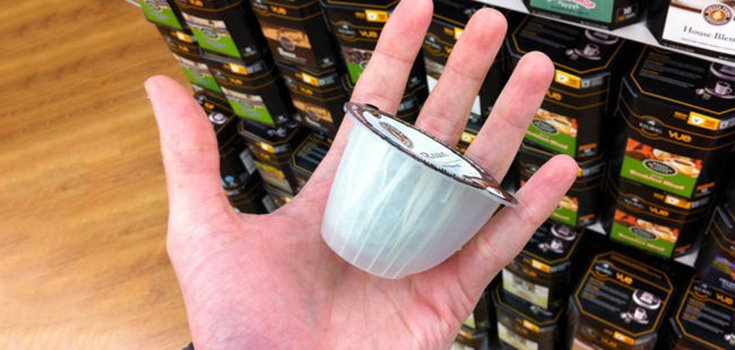Germany’s 2nd Largest City Bans K-Cups in Government Buildings

Keurigs and other single-serve coffee makers make great coffee and they sure are convenient. But environmentally speaking, the little plastic coffee pods, or “K-Cups,” that house the coffee are a nightmare. So much so that the city Hamburg, Germany’s second-largest city, just became the first in the world to ban them.

You can buy reusable K-Cups, which is certainly the more environmentally responsible choice but let’s be honest: most people don’t. The whole point of single-serve coffee makers is to be able to make coffee without having to measure anything, change filters, or clean a pot. It’s the tastiest and laziest way to make a cup of java.
But coffee pods are a thing of the past now in government buildings in Hamburg, where the ban was announced as part of a 150-page “Guide to Green Procurement” aimed at reducing environmental waste. Under the plan, the city banned purchasing “certain polluting products or product components” with city council money.
Coffee pods are among a number of items the city has eschewed, including bottled water and beer, chlorine-based cleaning products, air fresheners, and plastic plates and cutlery.
Related: What are These Tiny Plastic Microbeads are Polluting the Ocean?
Jan Dube, spokesman for the Hamburg Department of the Environment and Energy, which issued the guide, said:
“These portion packs cause unnecessary resource consumption and waste generation, and often contain polluting aluminum. It’s 6 grams of coffee in a 3 grams of packaging. We in Hamburg thought that these shouldn’t be bought with taxpayers’ money.” [1]
Approximately 13% of people in Germany drink coffee made from a single-cup brewer every day. In the United States, coffee pods account for about 1/3 of all coffee sold, and an estimated 25% of U.S. households owns a pod machine. [2]
John Sylvan, the founder of Keurig, never dreamed that those single-cup coffee makers would ever be used outside of the office, but according to an article published last March in The Atlantic, 1 in 3 Americans now own one. Supposedly – though no one could ever really test the theory – in 2014, enough K-Cups were sold that if placed end-to-end, they would circle the globe 10.5 times.
That’s a lot of non-recyclable, non-biodegradable plastic cups floating around.

Last year, Sylvan said he actually regrets developing the Keurig because of the harm coffee pods have done to the environment. Said Sylvan:
“No matter what they say about recycling, those things will never be recyclable.” [3]
However, the company has promised to create a fully recyclable version of its K-Cups by 2020. [4]
Sources:
[1] Independent
[2] Digital Journal
[3] The Atlantic
[4] Science Alert
Featured image source: Christopher MacManus/CNET
